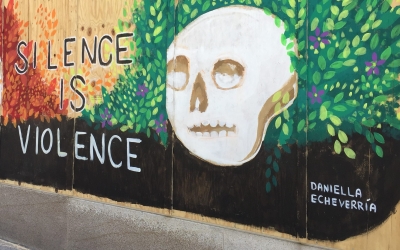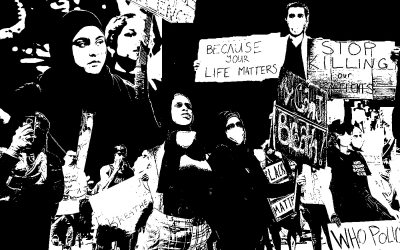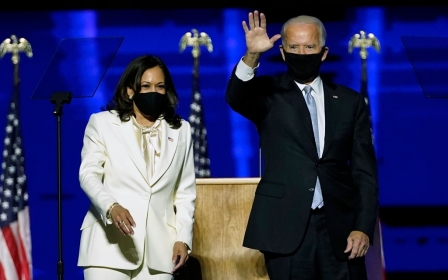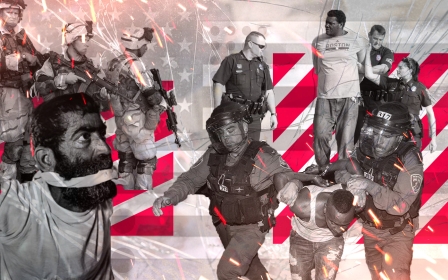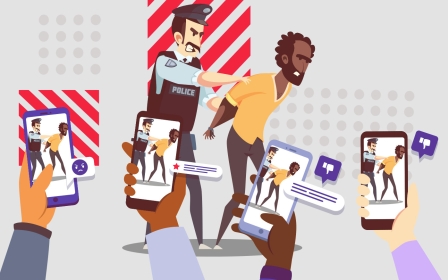'Shackled to a bed': UN experts condemn US treatment of Black journalist
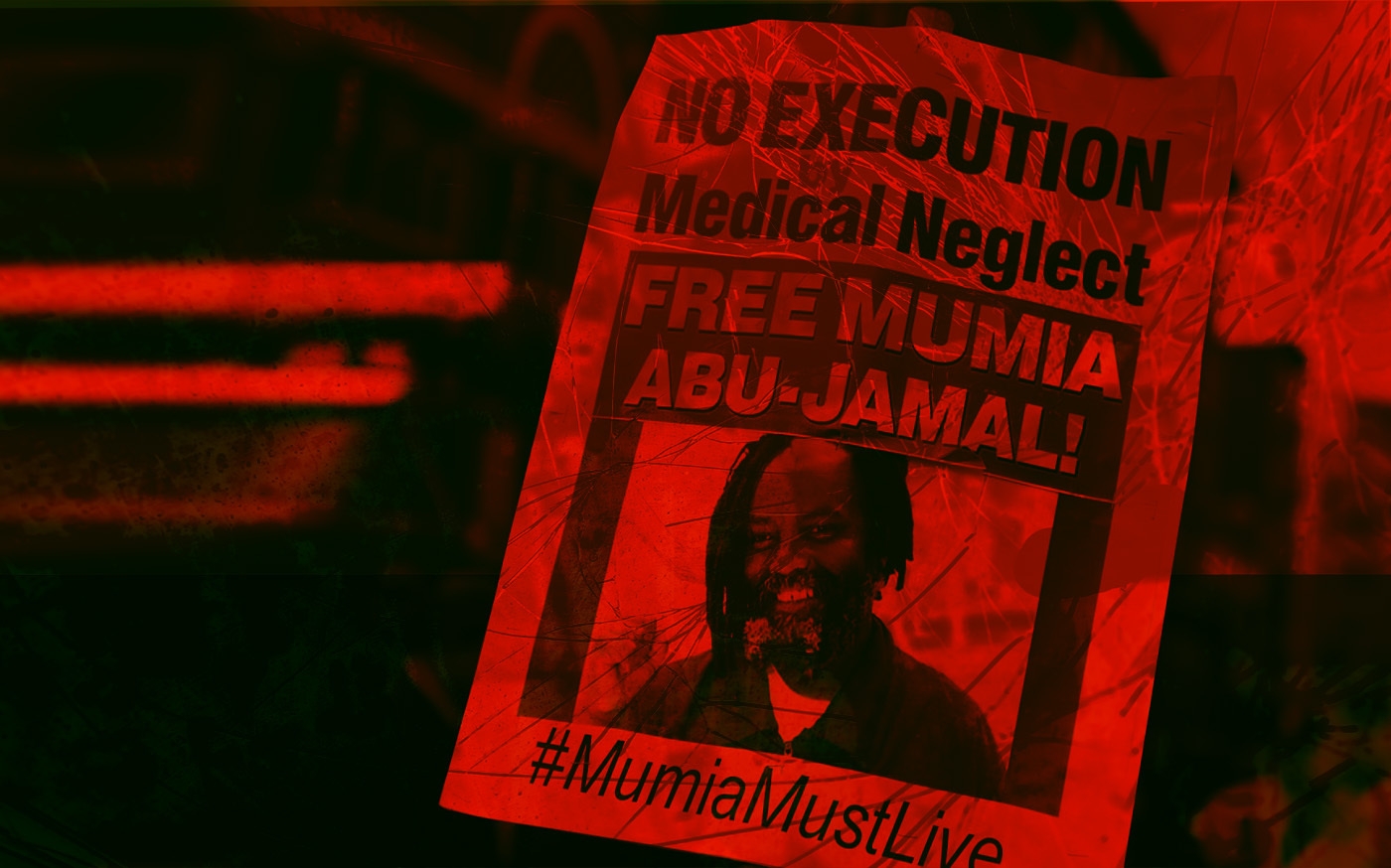
On Tuesday, progressive movements and proponents of the Black Lives Matter movement breathed a sigh of relief when a 12-member jury in Minneapolis found Derek Chauvin guilty of murdering George Floyd, the unarmed Black man whose death sparked a movement against police brutality in the US and across the world last year.
Commemorations took place at the road intersection in Minneapolis where bystanders had pleaded with Chauvin, 45, to remove his knee from Floyd's neck.
Further rallies were planned for Wednesday across major cities in the US, as activists looked to draw attention to a rare indictment and conviction of a police officer accused of killing someone while on duty.
But just as politicians took to social media and network television to discuss how the verdict might reinvigorate America's long walk towards redressing racial injustice, a group of UN human rights experts issued a scathing statement about the conditions under which an an elderly and ailing African American man is being held in a Pennsylvania prison.
New MEE newsletter: Jerusalem Dispatch
Sign up to get the latest insights and analysis on Israel-Palestine, alongside Turkey Unpacked and other MEE newsletters
The UN High Commission of Human Rights said in a statement that Mumia Abu-Jamal, a 67-year-old former Black Panther member and journalist, in jail for allegedly killing a police officer in 1981, was shackled to a hospital bed and subject to "unnecessary suffering" in conditions it described as "deplorable".
"This ongoing and continuing cruel, inhuman, and degrading treatment, including deliberate disregard of his dignity and inhumane conditions of confinement, is a clear violation of Mr Abu-Jamal's most fundamental rights," the experts added.
"International standards on the treatment of prisoners clearly stipulate that instruments of restraint are to be imposed only when no lesser form of control would be effective to address the risks posed by unrestricted movement," the statement read.
Maria A Bivens, press secretary for the Department of Correctional Services (DOC) in Pennsylvania, told Middle East Eye that the DOC was "following all legal and internal policies and procedures as it relates to the health and well-being of inmate Abu-Jamal."
"Because of confidentiality, I cannot address certain statements in the release that are inaccurate," Bivens said.
Meanwhile, activists following Abu-Jamal's situation accused authorities of trying to accelerate his death.
"It does appear like an attempt to try and kill him in prison," Suzanne Ross, an activist and long time supporter of Abu-Jamal, told MEE.
"The United States gets a way with a lot of things. There is a huge prevalence of police brutality. So many Black people have been killed by the police. Everyone is making a fuss about the jury finding Chauvin guilty, when it is such an exception to the rule."
"And you cannot be fooled by that. They gonna play this up by showing that America is great.
"I think its very significant that this UN report came out on the same day as the conviction and it shows a greater determination to do something about these crimes in the US," Ross added.
Always maintained innocence
Abu-Jamal was a part-time cab driver and journalist who wrote critical pieces about the ways in which the police treated MOVE, a Black radical group based in Philadelphia.
In 1981, he was arrested for the murder of a police officer named Daniel Faulkner.
Abu-Jamal has always maintained his innocence, with his supporters claiming he was framed by the Philadelphia police department; his case reportedly tangled in a series of irregularities.
Following a series of appeals, in 2011, his death sentence was commuted to life in prison, though he remained mostly in solitary confinement.
For years prior to the case, Abu-Jamal was reportedly targeted by the FBI's COINTELPRO programme which sought to interfere and discredit political dissidents, such as the Black Panthers. During his trial, Joe Davidson, president of the Association of Black Journalists, accused the media of being obsessed with his religion and political beliefs.
In 2000, Amnesty International published a 31-page report in which it concluded that "the proceedings used to convict and sentence Mumia Abu-Jamal to death were in violation of minimum international standards that govern fair trial procedures and the use of the death penalty [...] the interests of justice would best be served by the granting of a new trial to Mumia Abu-Jamal."
According to the UN statement, Abu-Jamal was not only denied visits from his family and lawyers, he was also placed in an undisclosed hospital for heart surgery that took place last week.
"The department does notify inmate designated next-of-kin of health updates regarding incarcerated individuals who are out of the facility for certain medical procedures. In addition, the department has allowed for inmates to talk to their families while hospitalized," Bivens from the DOC, said.
Abu-Jamal also suffers from cirrhosis of the liver caused by Hepatitis C, a severe skin condition, as well as hypertension. He also contracted Covid-19 in late February.
On Tuesday, Ross told MEE that their demands remained the same.
"We want him to be treated with dignity while he is in their care, but we still want him to be released because he is innocent," Ross said.
"When Barack Obama was president, our movement unravelled a little because of the excitement around a Black president being in charge. I am happy that people are a lot less naive about Biden's ability to change things... there isn't the same seduction as there was with Obama.
"There are thousands of people like Mumia in prison, so when we struggle for Mumia, we are struggling for everybody," Ross added.
Middle East Eye delivers independent and unrivalled coverage and analysis of the Middle East, North Africa and beyond. To learn more about republishing this content and the associated fees, please fill out this form. More about MEE can be found here.


